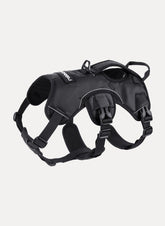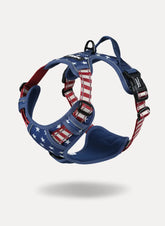How to take care of small-to-medium dogs
Like all dogs, they require a healthy diet, regular exercise, mental stimulation, and much more. Well, this blog post will guide you through everything you need to know about how to take care of a small dog.
Taking Care of Small-to-Medium Dogs
Wondering are small dogs easy to take care of? Your dog’s idea of a perfect world is one of safety, comfort, love, familiarity, and fun with you.
Small dogs need you to consider their emotional, mental, and physical needs every day. Care does not end at making your small dog sleep in your bedroom. It extends to feeding them proper food, grooming, training, exercise, and taking them for check-ups to a vet.
Home Safety for Small-to-Medium Dogs
Home safety is essential to protect your furry companion! Before bringing home the dog, you must prepare your home and secure every area. Dogs love chasing, chewing and eating anything they can get hold of. So of course, preparing your home for a dog is a must.
Introduce your dog to any pet-friendly zones you have prepared for them. That’s where a dog crate or pet gate comes in handy. To keep them safe, you may need to block off certain areas of your home, like staircases until they are brave or practiced enough to use them. For puppies, you can buy a Rabbitgoo Donut Bed.
Here's our home safety checklist:
| 1 | Baby gates are up |
| 2 | Wires and cables are stored away |
| 3 | Drugs and chemicals are away |
| 4 | Small spaces are blocked off |
| 5 | Stairs are blocked |
| 6 | Bags and shoes are away |
| 7 | High places can't be reached |
| 8 | Trash is stored securely |
| 9 | Human food is out of reach |
| 10 | Pet food is away |
Feeding Your Small-to-Medium Dogs
If you want your small-to-medium dog to be in good physical condition and full of energy, it is essential to feed them properly. Your dog's diet should be appropriate for their age, gender, and activity level.
To support their energy level, their diet should meet their nutritional requirements. Do not overfeed your small dog even if they act like they are starving. Generally, it’s best to break small dogs’ food into two to three tiny meals daily. Overfeeding small dogs can quickly lead to health issues, including heart disease, diabetes, arthritis, bloating, and obesity.
Training Needs of Small-to-Medium Dogs
Small breeds are usually fun-loving and playful. They must be trained right from puppyhood. Early socialization and training are important in positively directing their energy.The most suitable time to start training your pup is 8-12 weeks. Here are some of the training that you need to do with your puppy:
- Leash training
- Crate training
- Housetraining and potty training
- Basic commands and obedience training
If the training experience is pleasant, your furry friend will love it. Being sensitive dogs, harsh treatment and punishments will make them anxious. Get your dog Rabbitgoo Adjustable Reflective Small Dog Harness with 3 buckles for optimal protection and comfort.
Socialization
Try to socialize your small-to-medium breed as much as possible. Make sure your puppy gets to encounter all kinds of people, animals, and objects in different places.
Introducing new places and meeting new people will help your puppy stay well-mannered into adulthood. Socialization can stimulate their mind with new people, new dogs, and new sights, smells, and sounds.
Exercise Requirements
Small-to-medium-sized dogs need regular exercise, whether structured or unstructured. This will contribute to their happiness and overall well-being.
You can meet your small-to-medium breed's exercise requirements by walking and other physical activities like playing fetch, frisbee toss, and nose and scent games. Physical and mental stimulation through exercise and training will help constructively channel your dog’s energy.
Vet checkup
Vet check ups give you a chance to track your dog’s growth. You can discuss any questions about your small-to-medium dog's health with your vet.Vet annual examinations are a key part of preventive care. During your dog's annual physical exam, your vet will inspect your pet from head to tail. A series of vaccinations should begin at 6 to 8 weeks of age and repeat every three to four weeks until your dog is 16 weeks of age.
Some of the common health problems we see in small and medium dog breeds are:
- Tracheal collapse
- Patellar luxation
- Mitral valve disease
- IVDD (Intervertebral disc disease)
- Issues with temperature regulation
Seek professional help if your dog:
- Suffers from separation anxiety
- Experiences soiling/difficulty in house training
- Has perception of "stranger danger" at home and in public
- Is barking excessively
- Has difficulty with small children
- Shows handling and grooming intolerance
- Is overprotective of his person, also known as lap-guarding
- Exhibits reactivity and dramatic behavior toward other dogs
Best Medium Sized Dogs & Small Dogs
Want to know about best medium sized dogs & small dogs? Here are some popular small and medium sized dog breeds:- French Bulldog
- Pug
- Yorkshire Terrier
- Pomeranian
- Maltese
- Cavalier King Charles Spaniel
- Shih Tzu
- Boston Terrier
- Dachshund
- Chihuahua
- Beagle
- Cocker Spaniel
- Border Collie
- English Bulldog
- Basset Hound
You may want to know: The Most Popular Dog Breed in the USA
Final Thoughts
We hope this guide will help set you up for many wonderful years with your pup!
Small dogs can make good pets if they match your lifestyle. It is important to understand that as a dog parent, you are responsible for the care and well-being of your little furry pal.
And for quality pet products that cater to your large dog's needs, consider trying Rabbitgoo.
Your dog deserves the best, after all!
You may want to know: How to take care of large dogs









